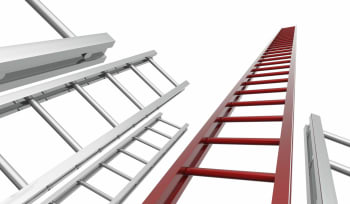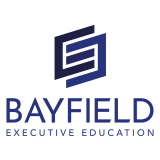This informal CPD article on Key Tips to Interview Success was provided by Veronica Bateman at Bayfield Training, a training company providing a wide range of Financial Modelling and Real Estate Strategy courses for the Global Real Estate Profession.
Securing an interview for a job role is a great success. There are many factors that can determine whether you get the job you have applied for, or not, when at interview stage. In this article we will dive into the best tips and practices when preparing for an interview, being interviewed and then after the process, to maximise your chances of being the candidate to get the job.
Before an interview
Research
It’s essential to do research prior to your meeting. Look into the company itself: its history, background etcetera. Find out who you will be meeting with, and the key team members roles, names and history in the company, utilising the company website.
TIP: An interesting tip when applying for a large company is to set up a Google alert to be notified on recent news that occurs in connection with the company before the interview, and you may be able to comment on their current affairs in the interview. This will prepare you to be informed and knowledgeable on the company’s business.
LinkedIn is also a useful tool to research the team members/managers. Make sure you are completely familiar with the job description and find out if someone is currently doing your role. If so, research them to learn patterns for success.
Conceptualise Your Personal Motivation for the Role
Make sure that when you are interviewed, you have a clear idea on what your own personal motivations for the job are, as you will likely be asked something along these lines and must have a genuine, unique answer.
It is also important to prepare intelligent questions to ask in the interview. Not only will they answer these questions and you will learn more about the job, but you will appear interested and intelligent, and to be actively thinking.
TIP: Ideas for questions include asking what the potential opportunities for growth in the role you’re applying for are, or what you need to achieve to be successful in this position after 3, 6 and 12 months. This makes you seem keen to succeed in the position in the short and long term.
Before the interview, make sure to refresh your memory on your CV so that in the interview you remain consistent with its content. It’s extremely important to mirror the information in your CV and be able to back up every point.
On the day of interview
Dress code and timings
You should wear formal clothes, look smart and presentable, and be reasonably early.
Body Language
You should have positive body language – good posture, and a professional manner. It’s a good idea to build rapport with the interviewer and use the research you’ve done on them to your advantage.
Transparency
It’s important to be upfront and transparent about any potential weaknesses or lack of experience you may have in certain areas, but to then redirect to how you are keen to learn and that you have experience that relates to that area, even if it may not be exactly the same.
TIP: Aim to have a back and forth conversation rather than just answering their questions. If you have a relevant experience to share, tell it using the structure of ‘Situation>Task>Actions>Results’ to explain what happened, what you needed to do, what you did and how your actions resulted in success.
Responses
Your research should have indicated to you the type of person they are looking to hire – so try to mirror this by using a few of their words, so that you fit the “perfect candidate” according to the job description.
It’s good practice to keep your answers fairly concise, whilst completely answering the question. Avoid going off-topic unless it’s absolutely relevant and adds value to your response. You must absolutely avoid scripting your responses. While it’s good to have points you’d like to talk about in mind, do not memorise answers as if you are scripted, it will not make a good impression nor lead to the natural back and forth conversation you are striving to achieve. Furthermore, it is advised not to talk about the salary in the first meeting unless the interviewer brings it up.
After the interview
Follow up & Connect
Send a follow up email thanking them for their time and consideration. Connect on LinkedIn if your page is appropriate and consistent with your information in the interview/CV and treat the meeting as a networking opportunity.
Evaluate & review
It’s good to evaluate your interview for the future: what went well, what was less positive, and what you can learn from it. Were there any unexpected moments? What would’ve been a better way to tackle these?
It is important to ask yourself it you got enough information to know if the job is right for you. While an interview is for you to sell yourself to the hiring managers, you should also use it to decide if this position is really what you want to do. Do you need to ask any more questions? It is then always useful to ask for feedback from the interviewer(s) to know how to improve your interview skills.
If you follow this advice, hopefully you will excel in your interview, make a great impression on the interviewers and eventually secure the job you applied for. With advice from MacDonald & Co, recruitment company for the real estate sector.
We hope this article was helpful. For more information from Bayfield Training please visit their CPD Member Directory page. Alternatively please visit the CPD Industry Hubs for more CPD articles, courses and events relevant to your Continuing Professional Development requirements.













